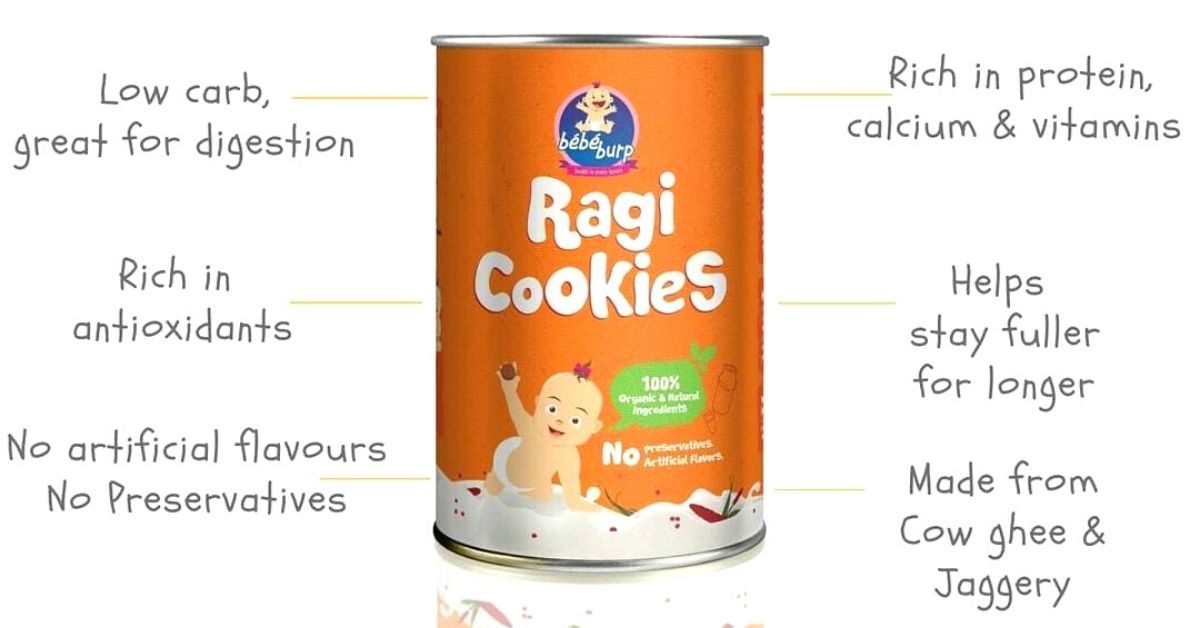After Surat-based Shruti Tibrewal’s (34) son Taksh was born, she began her quest to find nutritious food for him. She, her partner Bharat, and brother Chirag, together worked to hunt for food that promised healthy nutrients without any preservatives for the baby.
Months later, they still came up short. The family widened its search to imported baby food, but even that contained palm oil, sugar, or other types of preservatives. Disappointed with the scarcity of preservatives-free food, Shruti turned to her grandmothers for a solution.
“I wanted to give natural and organic food to my child, because I saw how my parent’s generation was healthier and often suffered from ailments only towards old age. However, people in my generation are already facing health problems like diabetes, blood pressure and heart ailments from a very young age. That is why I wanted to be careful with the baby’s diet,” Shruti says.
Citing her own example, she says, “My brother Chirag does not face too many health issues, but I do. One of the reasons was because I didn’t consume the healthiest food as right from when I was a baby. My mother saw me putting on weight as I grew older. She decided to be more careful when Chirag was born eight years later, and gave him strictly homemade food
A healthy alternative

Her mother and grandmothers introduced her to a range of grains and millet recipes. These included porridges made from superfoods like ragi, barley, grains, and so on. Multiple mixes ensured a balanced set of nutrients for her son. These recipes grew popular among Shruti’s friends and family, and based on this success, she began Bebeburp, an organic baby food startup.
Speaking about how she slowly built her brand, Shruti says, “I was acquainted with many new mothers of the same age group after my son was born. We interacted and socialised, and they learned about my homemade baby food. They decided to try it on their children, and the response was good. The mothers said their children became more active and reported fewer instances of fever. Some of my friends started asking me to make them in bulk, and some asked me for the recipes.”
One such customer was Himani Arora, who says she buys Bebeburp’s ragi cookies and protein powder for her five-year-old daughter. “I’ve been using the products for the last three years, and have seen my child become more active and complain less of fevers and other illnesses,” she says. She says the ragi cookies have proved to be a good solution for her daughter to get the right nutrients.
Even before Shruti began officially selling her product, she was getting a host of re-orders, because friends and family who had sampled it kept coming back for more. By 2017, Shruti and Bharat decided to launch a company by procuring all licenses and permissions. Bharat says the product was approved after testing at government laboratories and received the FSSAI certificate.
“We made mixes like oatmeal, khichdi, millet, and barley, as well as cookies made of ragi, oats, and raisins, and displayed it on Firstcry, BabyChakra, Flipkart, and other online portals. We modernised the traditional recipes to increase their shelf life through natural methods, and made the products read-to-eat. The product was priced between Rs 109 and Rs 239 for children above six months of age,” he adds.
Scaling up

Initially, the products were made at home. However, the startup later rented a facility on a weekly basis to prepare the product. “We receive around 50 orders a day from across India, and have sales worth Rs 4 lakh a month. We have customers from ten cities, including Pune, Mumbai, Ahmedabad and Vadodara, and are now targeting offline stores in Bengaluru, Hyderabad, and Coimbatore,” he adds.
Chirag says convincing customers about the products’ quality and its premium pricing became a challenge. “It was difficult for them to understand why the baby food was priced so high. The customers were explained that the food contained real frozen fruits with no preservatives like sugar or salt. Parents came to love the product once they were convinced of the quality,” he adds.
He also says that competing with established players in the market was another task. “It took time to find a place in the market and gain visibility. But our products attracted customers because they were made of ghee and natural ingredients, and were hence of better quality,” he says.
The company has six mixes and two types of cookies currently, but aims to expand to snacks and other ranges of items in the coming weeks.
Edited by Divya Sethu
No comments:
Post a Comment